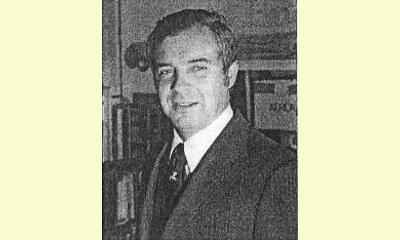|
|
New Haven (US) Votes to Cut Military Budget and Fund Human Needs
an article by David Adams
On election day, voters in New Haven gave
overwhelming support to the referendum question,
Shall Congress reduce military spending; transfer
funds to convert to civilian production; create
jobs to rebuild our infrastructure; meet pressing
human needs?

Tom Holahan, who was Chair of the New Haven Peace Commission during the previous referendum in 1989
click on photo to enlarge
According to the Registrar of Voters Office, 23,398
city residents voted yes, while 4,152 voted no,
which comes to 85%
Of course, the referendum is not binding, since
military budgets are decided at a national level,
but it shows that at a grass roots level, people
want a different priority for their tax dollars.
Al Marder of the New Haven Peace Commission, which
pressed for the ballot referendum, told CPNN that
this issue is at the core of the problems of
America's cities. It cannot be solved at a local
level. It can only be solved at the national
level where, despite record levels of
unemployment, priority continues to be given to
military spending. The referendum sends a signal
to Congress that this must be reversed.
New Haven has long been in forefront of the
struggle for a culture of peace. This referendum
comes exactly 23 years after a similar initiative,
which was one of the first acts of the New Haven
City Peace Commission after it came into being in
1987. The results in
1989 were the same as in 2012: 83% vote in
favor of cutting the military budget and funding
human needs.
A similar referendum was held on election day this year in 91 towns in neighboring Massachusetts. According to the preliminary results, it was supported in all of them, with an average approval rate of 74%.
|








|
DISCUSSION
Question(s) related to this article:
How can culture of peace be developed at the municipal level?,
* * * * *
Latest reader comment:
International Cities Choose Peace
J. Fred Arment
arment@internationalcitiesofpeace.org
International Cities of Peace, an association of global cities of peace, is using the U.N. Culture of Peace tenets as the guideline for forming initiatives. To date, thirty-one cities are part of the association. Some are grassroots organizations, others have the firm commitment by resolution or proclamation from the city council.
International Cities of Peace include the following:
Dayton, Ohio, U.S.A.
Eugene, Oregon, U.S.A.
Unity Village, Missouri, U.S.A
Coventry, England
Bradford, England
Guadalajara, Jalisco, Mexico
Bukavu, Democratic Republic of Congo
Mataki, Philippines
Pathuthani, Thailand
Fizi, Democratic Republic of Congo
Lake County, California, U.S.A.
Aba, Abia State, Nigeria
Nagpur, India
Reno, Nevada, U.S.A.
Bujumbura, Burundi
Mzuzu and Lilongwe, Malawi
Tunis, Tunisia
Tuolumne County, California, U.S.A.
Bihac, Bosnia, Herzegovina
Yaounde, Cameroon
Freetown, Sierra Leone
Nyala, Darfur, Sudan
Bujumbura, Burundi
Victoria, British Columbia, Canada
Nakuru, Kenya
Calgary, Alberta, Canada
Kathmandu, Nepal
Detroit, Michigan, U.S.A.
Egg Harbor City, New Jersey, U.S.A.
Warrake, Nigeria
Kalamazoo, Michigan, U.S.A.
To start an initiative, go to the association's website for resources and tools.

|
|









